Find Top-Rated Construction Companies Near You
Build Your Dreams with Trusted Professionals
ExcavationHQ connects you with vetted construction companies for any project. Get free quotes, compare services, and find the perfect match for your construction needs in the UK. For new homes, renovations, or commercial projects, we've got you covered.
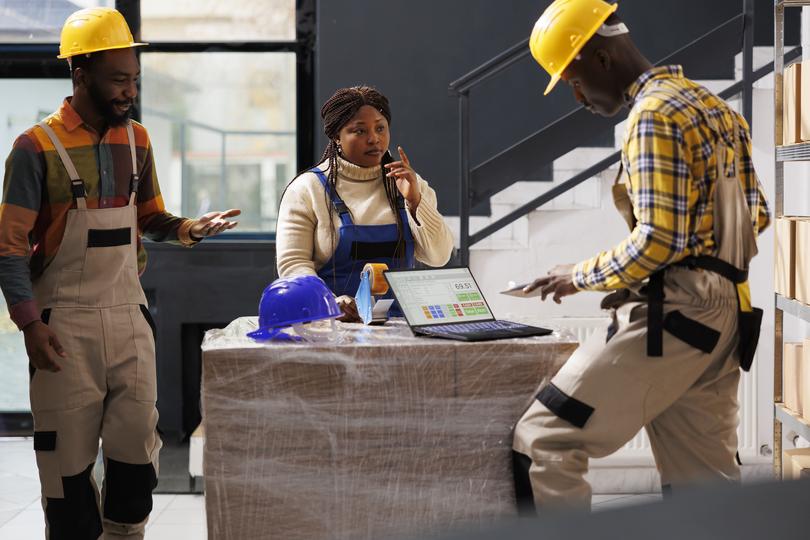
Discover Other Construction-Related Services
ExcavationHQ offers a full range of construction-related services. Find specialists for painting, HVAC, landscaping and more.
Find reliable excavation contractors near you. Get quotes for site preparation, grading, trenching, and more.
Need a structure removed safely and efficiently? Find experienced demolition contractors for projects big and small.
From hauling to delivery, find dirt contractors that can handle your soil and aggregate needs for any project.
Protect your health and property with certified asbestos removal contractors. Find experts in asbestos abatement and disposal.
Finding The Right Construction Company Is Easy With ExcavationHQ
We make it simple to connect with vetted construction professionals across the UK.
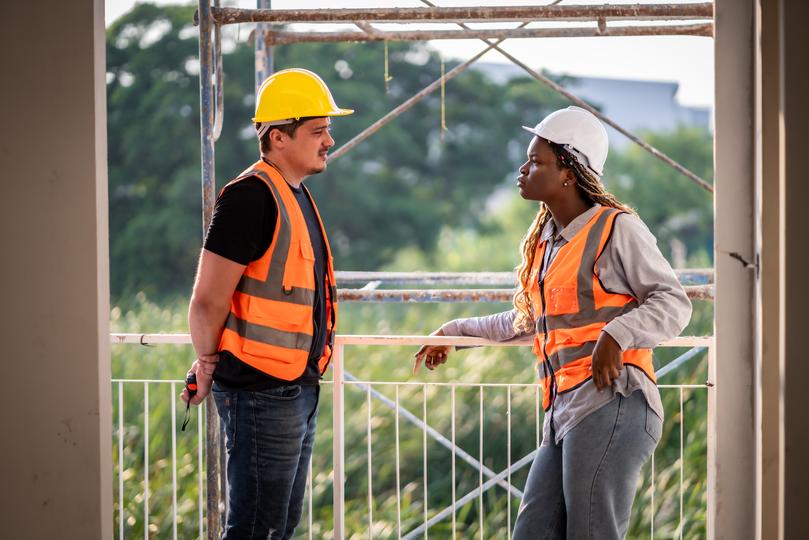
- Tell Us About Your Project
- Describe your construction needs, whether it's for an extension, a new home, commercial construction. Tell us about the project scope, your budget, and desired timeline.
- We Connect You With Local Contractors
- We'll match you with reputable construction companies in your area that specialize in your project type and have the experience to handle your specific requirements.
- Compare Quotes & Choose The Best Fit
- Review quotes, compare services, and choose the construction company that best meets your needs, budget, and timeline. We empower you with the information necessary to make an informed decision.
- Get Your Project Started!
- With the right construction company, you can start your project with confidence, knowing that you're in capable hands.
Why Choose ExcavationHQ to Find Your Construction Company?
Why Choose ExcavationHQ for Your Excavation Needs?
ExcavationHQ simplifies the process of finding the perfect construction company for your project in the UK. We connect you with reputable, vetted construction professionals, saving you time and effort. Here's why ExcavationHQ is the ideal choice for your construction needs: We make it easy to find and compare qualified excavation companies in your area. Here's how:

- Vetted and Reliable Contractors
- We meticulously vet all construction companies listed in our directory, ensuring they are licensed, insured, and have a proven track record of delivering quality workmanship and excellent customer service. We take the guesswork out of finding a trustworthy contractor, giving you peace of mind.
- Competitive Quotes, Easily Compared
- Receive competitive quotes from multiple construction companies directly through our platform. Compare pricing, services, and experience side-by-side, making it easy to choose the best value for your project. Our streamlined process saves you valuable time and ensures you get the most competitive bids.
- Wide Range of Construction Expertise
- We feature a diverse network of construction companies specializing in various project types, including home additions, custom home building, general contracting. Whether you're planning a major commercial development, we can connect you with the right experts for the job.
- Simplified Search and Selection
- Our user-friendly platform allows you to easily search for construction companies based on location, specialization, project type, and other criteria. Quickly filter through our extensive directory to find the perfect match for your specific needs. We take the hassle out of finding qualified contractors, putting you in control of the selection process.
- Dedicated Customer Support
- Our dedicated customer support team is available to assist you throughout your construction journey. Whether you have questions about our platform, need help finding a specific contractor, or require assistance with any aspect of the process, we're here to support you.
- Free To Use, No Hidden Fees
- ExcavationHQ is a free platform that connects you with construction companies. There are no hidden fees or obligations. Get started today and find the perfect builder for your project.
Building Success for Your Business
Commercial Construction Services
Find trusted commercial construction companies on ExcavationHQ. We specialize in connecting businesses with experienced contractors for a wide range of commercial projects, including office buildings, retail spaces, restaurants. Our network of qualified professionals ensures that your project is completed to the highest standards, on time, and within budget.
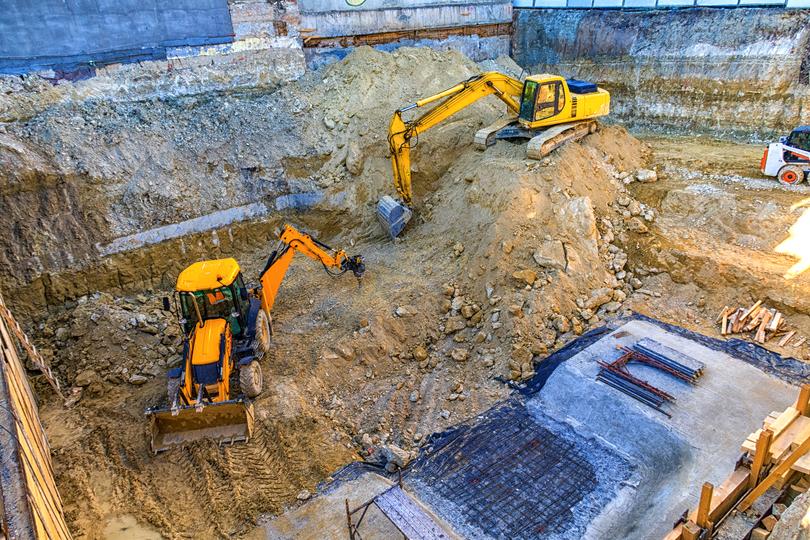
Find reliable excavation contractors near you. Get quotes for site preparation, grading, trenching, and more.
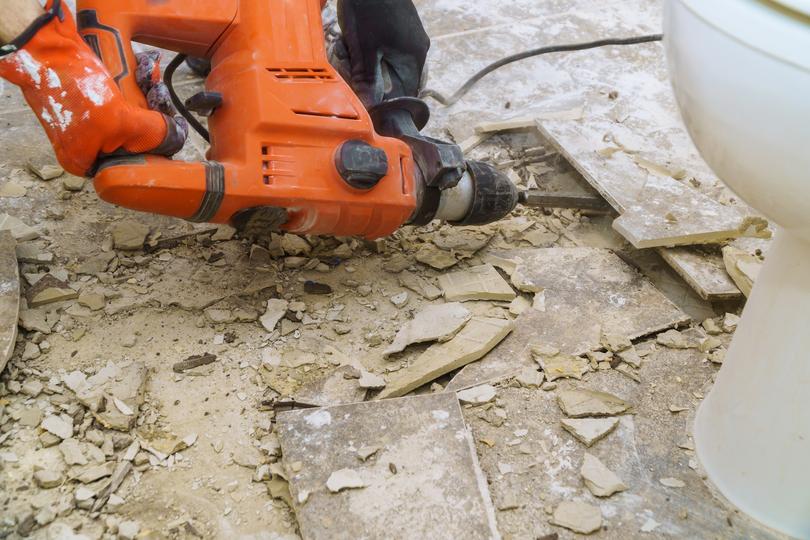
Need a structure removed safely and efficiently? Find experienced demolition contractors for projects big and small.
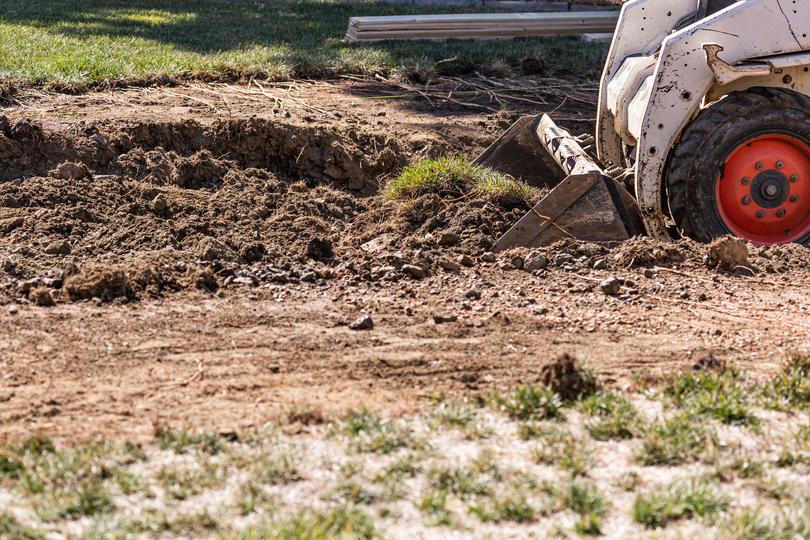
From hauling to delivery, find dirt contractors that can handle your soil and aggregate needs for any project.
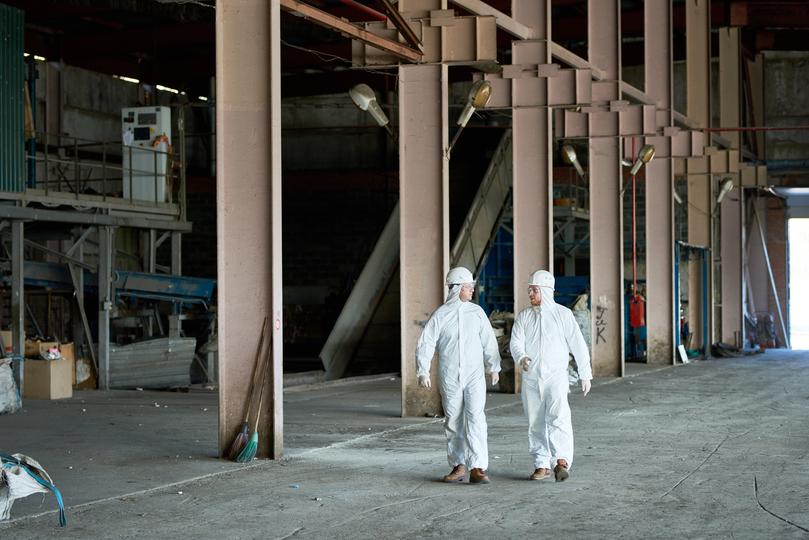
Protect your health and property with certified asbestos removal contractors. Find experts in asbestos abatement and disposal.

Find reliable and experienced construction companies in your area for new home builds, renovations, and commercial projects.
Building the Home of Your Dreams
Residential Construction Services
ExcavationHQ connects homeowners with reliable residential construction companies. Whether you're planning a new home construction, renovation, remodel, we'll help you find the right contractor for your project. Our platform features vetted professionals with experience in all aspects of home construction, ensuring quality craftsmanship and customer satisfaction.

Find reliable excavation contractors near you. Get quotes for site preparation, grading, trenching, and more.

Need a structure removed safely and efficiently? Find experienced demolition contractors for projects big and small.

From hauling to delivery, find dirt contractors that can handle your soil and aggregate needs for any project.

Protect your health and property with certified asbestos removal contractors. Find experts in asbestos abatement and disposal.

Find reliable and experienced construction companies in your area for new home builds, renovations, and commercial projects.
Ready to Build?
Find the Perfect Construction Company for Your Project
Get free quotes, compare services, and connect with trusted construction professionals on ExcavationHQ.
Construction Glossary
Blueprint
Building Code
Contractor
Foundation
Framing
HVAC
Insulation
Permit
Renovation
Subcontractor
Construction Management
Drywall
Punch List
Change Order
Warranty
Frequently Asked Questions About Construction Companies
How do I find a good construction company?
- Experience and Expertise: A proven track record in the type of construction you need (residential, commercial, etc.).
- Proper Licensing and Insurance: Verify their licenses and insurance coverage to protect yourself from liability.
- Positive Reviews and References: Check online reviews and request references from past clients to assess their reputation.
- Clear Communication and Professionalism: Choose a company that communicates effectively, provides detailed proposals, and adheres to ethical practices.
- Financial Stability: Ensure the company has a stable financial history to avoid potential project delays or disruptions.
How much does it cost to hire a construction company?
What are the different types of construction companies?
- Residential Construction Companies: Specialize in building, renovating, or remodeling homes.
- Commercial Construction Companies: Focus on constructing commercial buildings such as offices, retail spaces, or industrial facilities.
- Industrial Construction Companies: Specialize in large-scale projects like factories, power plants, or refineries.
- Specialty Construction Companies: Focus on specific trades like roofing, electrical, plumbing, or HVAC.
- General Contractors: Oversee entire construction projects, hiring and managing subcontractors for various trades.
What questions should I ask a construction company before hiring them?
- Experience: 'How long have you been in business, and what experience do you have with projects similar to mine?'
- Licensing and Insurance: 'Are you licensed and insured? Can I see proof of your coverage?'
- References: 'Can you provide contact information for past clients?'
- Project Management: 'How will you manage the project timeline and budget? Who will be my point of contact?'
- Communication: 'How will you keep me updated on the project's progress?'
- Warranties: 'What warranties do you offer on your work and materials?'
- Payment Terms: 'What are your payment terms? Do you require a down payment?'
- Change Orders: 'How do you handle change orders if unexpected issues or modifications arise during the project?'
What is a construction contract?
- Scope of Work: A comprehensive description of the project, including materials, specifications, and deadlines.
- Payment Schedule: Details of payment milestones and amounts.
- Change Order Procedures: How modifications and additional costs are handled.
- Dispute Resolution: Methods for resolving conflicts or disagreements.
- Warranty Information: Guarantees on workmanship and materials.
What are the stages of a construction project?
- Planning and Design: Developing blueprints, obtaining permits, and finalizing project specifications.
- Site Preparation: Clearing land, excavation, and setting up utilities.
- Foundation: Building a stable foundation for the structure.
- Framing: Constructing the skeletal structure of the building.
- Roofing:
- Exterior Finishes:
- Interior Finishes:
- Mechanical, Electrical, and Plumbing (MEP):
- Landscaping and Final Touches:
How do I manage a construction project effectively?
- Detailed Planning: Establish a clear project scope, budget, and timeline upfront.
- Regular Communication: Maintain open and consistent communication with your construction company and other stakeholders.
- Budget Monitoring: Track expenses and ensure adherence to the agreed-upon budget.
- Quality Control: Regularly inspect the work to ensure quality standards are met.
- Problem Resolution: Address any unexpected issues or changes promptly and effectively.
- Documentation: Keep thorough records of all communication, contracts, and expenses.
What are some common construction delays?
- Weather Conditions:
- Permitting Issues:
- Material Shortages:
- Change Orders:
- Contractor Availability:
What is the importance of insurance in construction?
What is the role of a general contractor?
What is the difference between a construction manager and a general contractor?
How do I prepare for a construction project?
- Define Scope and Budget: Outline your project goals, desired features, and budget constraints.
- Research and Hire Professionals: Select qualified architects, engineers, and contractors based on their experience and reputation.
- Obtain Necessary Permits: Ensure all required permits are in place before starting construction.
- Communicate Effectively: Establish clear communication channels with your project team.
- Prepare the Site: Clear the area, arrange for utilities, and ensure access for construction equipment.
What is a construction loan?
What are the payment terms for construction projects?
- Fixed-Price Contracts: A lump-sum payment for the entire project, typically paid in installments based on milestones achieved.
- Cost-Plus Contracts: The owner reimburses the contractor for actual costs incurred plus a fee or percentage for overhead and profit.
- Time and Materials Contracts: The owner pays for labor and materials on an hourly or daily rate. Suitable for smaller projects or when the project scope is uncertain.
What are some tips for hiring a construction contractor?
- Get Referrals: Ask friends, family, neighbors, or colleagues for recommendations.
- Check Licenses and Insurance: Verify the contractor's licensing, insurance coverage, and bonding.
- Read Reviews: Research the contractor's online reviews and reputation.
- Compare Multiple Bids: Get detailed quotes from several contractors and compare their pricing, services, and experience.
- Communicate Clearly: Discuss your project in detail and ensure you're on the same page regarding scope, budget, and timeline.
- Sign a Contract: Have a written contract in place before work begins, detailing all project specifics and payment terms.
What is a construction bond?
What is construction estimating?
What is construction scheduling?
What is value engineering in construction?
What are some common construction disputes?
- Payment Disputes:
- Change Orders:
- Defective Workmanship:
- Delays and Schedule Overruns:
- Differing Site Conditions:
What is sustainable construction?
What are some common construction materials?
- Concrete:
- Steel:
- Wood:
- Brick:
- Glass:
- Drywall:
- Insulation:
What is pre-construction in a construction project?
What is the role of an architect in a construction project?
How do I find a good construction company?
- Experience and Expertise: A proven track record in the type of construction you need (residential, commercial, etc.).
- Proper Licensing and Insurance: Verify their licenses and insurance coverage to protect yourself from liability.
- Positive Reviews and References: Check online reviews and request references from past clients to assess their reputation.
- Clear Communication and Professionalism: Choose a company that communicates effectively, provides detailed proposals, and adheres to ethical practices.
- Financial Stability: Ensure the company has a stable financial history to avoid potential project delays or disruptions.
How much does it cost to hire a construction company?
What are the different types of construction companies?
- Residential Construction Companies: Specialize in building, renovating, or remodeling homes.
- Commercial Construction Companies: Focus on constructing commercial buildings such as offices, retail spaces, or industrial facilities.
- Industrial Construction Companies: Specialize in large-scale projects like factories, power plants, or refineries.
- Specialty Construction Companies: Focus on specific trades like roofing, electrical, plumbing, or HVAC.
- General Contractors: Oversee entire construction projects, hiring and managing subcontractors for various trades.
What questions should I ask a construction company before hiring them?
- Experience: 'How long have you been in business, and what experience do you have with projects similar to mine?'
- Licensing and Insurance: 'Are you licensed and insured? Can I see proof of your coverage?'
- References: 'Can you provide contact information for past clients?'
- Project Management: 'How will you manage the project timeline and budget? Who will be my point of contact?'
- Communication: 'How will you keep me updated on the project's progress?'
- Warranties: 'What warranties do you offer on your work and materials?'
- Payment Terms: 'What are your payment terms? Do you require a down payment?'
- Change Orders: 'How do you handle change orders if unexpected issues or modifications arise during the project?'
What is a construction contract?
- Scope of Work: A comprehensive description of the project, including materials, specifications, and deadlines.
- Payment Schedule: Details of payment milestones and amounts.
- Change Order Procedures: How modifications and additional costs are handled.
- Dispute Resolution: Methods for resolving conflicts or disagreements.
- Warranty Information: Guarantees on workmanship and materials.
What are the stages of a construction project?
- Planning and Design: Developing blueprints, obtaining permits, and finalizing project specifications.
- Site Preparation: Clearing land, excavation, and setting up utilities.
- Foundation: Building a stable foundation for the structure.
- Framing: Constructing the skeletal structure of the building.
- Roofing:
- Exterior Finishes:
- Interior Finishes:
- Mechanical, Electrical, and Plumbing (MEP):
- Landscaping and Final Touches:
How do I manage a construction project effectively?
- Detailed Planning: Establish a clear project scope, budget, and timeline upfront.
- Regular Communication: Maintain open and consistent communication with your construction company and other stakeholders.
- Budget Monitoring: Track expenses and ensure adherence to the agreed-upon budget.
- Quality Control: Regularly inspect the work to ensure quality standards are met.
- Problem Resolution: Address any unexpected issues or changes promptly and effectively.
- Documentation: Keep thorough records of all communication, contracts, and expenses.
What are some common construction delays?
- Weather Conditions:
- Permitting Issues:
- Material Shortages:
- Change Orders:
- Contractor Availability:
What is the importance of insurance in construction?
What is the role of a general contractor?
What is the difference between a construction manager and a general contractor?
How do I prepare for a construction project?
- Define Scope and Budget: Outline your project goals, desired features, and budget constraints.
- Research and Hire Professionals: Select qualified architects, engineers, and contractors based on their experience and reputation.
- Obtain Necessary Permits: Ensure all required permits are in place before starting construction.
- Communicate Effectively: Establish clear communication channels with your project team.
- Prepare the Site: Clear the area, arrange for utilities, and ensure access for construction equipment.
What is a construction loan?
What are the payment terms for construction projects?
- Fixed-Price Contracts: A lump-sum payment for the entire project, typically paid in installments based on milestones achieved.
- Cost-Plus Contracts: The owner reimburses the contractor for actual costs incurred plus a fee or percentage for overhead and profit.
- Time and Materials Contracts: The owner pays for labor and materials on an hourly or daily rate. Suitable for smaller projects or when the project scope is uncertain.
What are some tips for hiring a construction contractor?
- Get Referrals: Ask friends, family, neighbors, or colleagues for recommendations.
- Check Licenses and Insurance: Verify the contractor's licensing, insurance coverage, and bonding.
- Read Reviews: Research the contractor's online reviews and reputation.
- Compare Multiple Bids: Get detailed quotes from several contractors and compare their pricing, services, and experience.
- Communicate Clearly: Discuss your project in detail and ensure you're on the same page regarding scope, budget, and timeline.
- Sign a Contract: Have a written contract in place before work begins, detailing all project specifics and payment terms.
What is a construction bond?
What is construction estimating?
What is construction scheduling?
What is value engineering in construction?
What are some common construction disputes?
- Payment Disputes:
- Change Orders:
- Defective Workmanship:
- Delays and Schedule Overruns:
- Differing Site Conditions:
What is sustainable construction?
What are some common construction materials?
- Concrete:
- Steel:
- Wood:
- Brick:
- Glass:
- Drywall:
- Insulation: